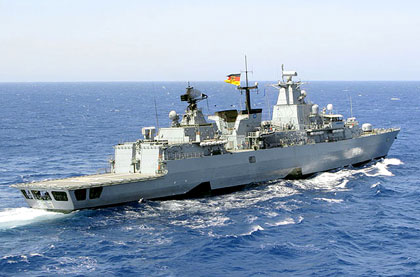Draft Treaty on European Security (Russian proposal) (November 29, 2009)
EUROPEAN SECURITY TREATY
(Unofficial translation)
Draft
The Parties to this Treaty,
Desiring to promote their relations in the spirit of friendship and cooperation in conformity with international law,
Guided by the principles set forth in the Charter of the United Nations, Declaration on Principles of International Law concerning Friendly Relations and Cooperation among States in accordance with the Charter of the United Nations (1970), Helsinki Final Act of the Conference for Security and Cooperation in Europe (1975), as well as provisions of the Manila Declaration on the Peaceful Settlement of International Disputes (1982) and Charter for European Security (1999),
Reminding that the use of force or the threat of force against the territorial integrity or political independence of any state, or in any other way inconsistent with the goals and principles of the Charter of the United Nations is inadmissible in their mutual relations, as well as international relations in general,
Acknowledging and supporting the role of the UN Security Council, which bears the primary responsibility for maintaining international peace and security,
Recognizing the need to join efforts in order to respond effectively to present-day security challenges and threats in the globalized and interdependent world,
Intending to build effective cooperation mechanisms that could be promptly activated with a view to solving issues or differences that might arise, addressing concerns and adequately responding to challenges and threats in the security sphere,
Have agreed as follows:
Article 1
According to the Treaty, the Parties shall cooperate with each other on the basis of the principles of indivisible, equal and undiminished security. Any security measures taken by a Party to the Treaty individually or together with other Parties, including in the framework of any international organization, military alliance or coalition, shall be implemented with due regard to security interests of all other Parties. The Parties shall act in accordance with the Treaty in order to give effect to these principles and to strengthen security of each other.
Article 2
1. A Party to the Treaty shall not undertake, participate in or support any actions or activities significantly affecting security of any other Party or Parties to the Treaty.
2. A Party to the Treaty which is a member of military alliances, coalitions or organizations shall seek to ensure that such alliances, coalitions or organizations observe principles set forth in the Charter of the United Nations, Declaration on Principles of International Law concerning Friendly Relations and Cooperation among States in accordance with the Charter of the United Nations, Helsinki Final Act, Charter for European Security and other documents adopted by the Organization for Security and Cooperation in Europe, as well as in Article 1 of this Treaty, and that decisions taken in the framework of such alliances, coalitions or organizations do not significantly affect security of any Party or Parties to the Treaty.
3. A Party to the Treaty shall not allow the use of its territory and shall not use the territory of any other Party with the purpose of preparing or carrying out an armed attack against any other Party or Parties to the Treaty or any other actions significantly affecting security of any other Party or Parties to the Treaty.
Article 3
1. A Party to the Treaty shall be entitled to request, through diplomatic channels or the Depositary, any other Party to provide information on any significant legislative, administrative or organizational measures taken by that other Party, which, in the opinion of the Requesting Party , might affect its security.
2. Parties shall inform the Depositary of any requests under para.1 of this Article and of responses to them. The Depositary shall bring that information to the attention of the other Parties.
3. Nothing in this Article prevents the Parties from undertaking any other actions to ensure transparency and mutual trust in their relations.
Article 4
The following mechanism shall be established to address issues related to the substance of this Treaty, and to settle differences or disputes that might arise between the Parties in connection with its interpretation or application:
(a) Consultations among the Parties;
(b) Conference of the Parties;
(c) Extraordinary Conference of the Parties.
Article 5
1. Should a Party to the Treaty determine that there exists a violation or a threat of violation of the Treaty by any other Party or Parties, or should it wish to raise with any other Party or Parties any issue relating to the substance of the Treaty and requiring, in its opinion, to be considered jointly, it may request consultations on the issue with the Party or Parties which, in its opinion, might be interested in such consultations. Information regarding such a request shall be brought by the Requesting Party to the attention of the Depositary which shall inform all other Parties accordingly.
2. Such consultations shall be held as soon as possible, but not later than (...)days from the date of receipt of the request by the relevant Party unless a later date is indicated in the request.
3. Any Party not invited to take part in the consultations shall be entitled to participate on its own initiative.
Article 6
1. Any participant to consultations held under Article 5 of this Treaty shall be entitled, after having held the consultations, to propose the Depositary to convene the Conference of the Parties to consider the issue that was the subject of the consultations.
2. The Depositary shall agree the Conference of the Parties, provided that the relevant proposal is supported by not less than (two) Parties to the Treaty, within (...) days from the date of receipt of the relevant request.
3. The Conference of the Parties shall be effective if it is attended by at least two thirds of the Parties to the Treaty. Decisions of the Conference shall be taken by consensus and shall be binding.
4. The Conference of the Parties shall adopt its own rules of procedure.
Article 7
1. In case of an armed attack or a threat of such attack against a Party to the Treaty, immediate actions shall be taken in accordance with Article8(1) of the Treaty.
2. Without prejudice to the provisions of Article8 of the Treaty, every Party shall be entitled to consider an armed attack against any other Party an armed attack against itself. In exercising its right of self-defense under Article51 of the Charter of the United Nations, it shall be entitled to render the attacked Party, subject to its consent, the necessary assistance, including the military one, until the UN Security Council has taken measures necessary to maintain international peace and security. Information on measures taken by Parties to the Treaty in exercise of their right of self-defense shall be immediately reported to the UN Security Council.
Article 8
1. In cases provided for by Article7 of this Treaty, the Party which has been attacked or threatened with an armed attack shall bring that to the attention of the Depositary which shall immediately convene an Extraordinary Conference of the Parties to decide on necessary collective measures.
2. If the Party which became subject to an armed attack is not able to bring that to the attention of the Depositary, any other Party shall be entitled to request the Depositary to convene an Extraordinary Conference of the Parties, in which case the procedure provided for in Para.1 of this Article shall be applied.
3. The Extraordinary Conference of the Parties may decide to invite third states, international organizations or other concerned parties to take part in it.
4. The Extraordinary Conference of the Parties shall be effective if it is attended by at least four fifths of the Parties to the Treaty. Decisions of the Extraordinary Conference of the Parties shall be taken by unanimous vote and shall be binding. If an armed attack is carried out by, or a threat of such attack originates from a Party to the Treaty, the vote of that Party shall not be included in the total number of votes of the Parties in adopting a decision.
The Extraordinary Conference of the Parties shall adopt its own rules of procedure.
Article 9
1. This Treaty shall not affect and shall not be interpreted as affecting the primary responsibility of the UN Security Council for maintaining international peace and security, as well as rights and obligations of the Parties under the Charter of the United Nations.
2. The Parties to the Treaty reaffirm that their obligations under other international agreements in the area of security, which are in effect on the date of signing of this Treaty are not incompatible with the Treaty.
3. The Parties to the Treaty shall not assume international obligations inconsistent with the Treaty.
4. This Treaty shall not affect the right of any Party to neutrality.
Article 10
This Treaty shall be open for signature by all States of the Euro-Atlantic and Eurasian space from Vancouver to Vladivostok as well as by the following international organizations: the European Union, Organization for Security and Cooperation in Europe, Collective Security Treaty Organization, North Atlantic Treaty Organization and Community of Independent States in … from … to ….
Article 11
1. This Treaty shall be subject to ratification by the signatory States and to approval or adoption by the signatory international organizations. The relevant notifications shall be deposited with the government of ... which shall be the Depositary.
2. In its notification of the adoption or approval of this Treaty, an international organization shall outline its sphere of competence regarding issues covered by the Treaty.
It shall immediately inform the Depositary of any relevant changes in its sphere of competence.
3. States mentioned in Article 10 of this Treaty which did not sign the Treaty during the period indicated in that Article may accede to this Treaty by depositing the relevant notification with the Depositary.
Article 12
This Treaty shall enter into force ten days after the deposit of the twenty fifth notification with the Depositary in accordance with Article 11 of the Treaty.
For each State or international organization which ratifies, adopts or approves this Treaty or accedes to it after the deposit of the twenty fifth notification of ratification, adoption, approval or accession with the Depositary, the Treaty shall enter into force on the tenth day after the deposit by such State or organization of the relevant notification with the Depositary.
Article 13
Any State or international organization may access this Treaty after its entry into force, subject to the consent of all Parties to this Treaty, by depositing the relevant notification with the Depositary.
For an acceding State or international organization, this Treaty shall enter into force 180 days after the deposit of the instrument of accession with the Depositary, provided that during the said period no Party notifies the Depositary in writing of its objections against such accession.
Article 14
Each Party shall have the right to withdraw from this Treaty should it determine that extraordinary circumstances relating to the substance of the Treaty have endangered its supreme interests. The Party intending to withdraw from the Treaty shall notify the Depositary of such intention at least (...) days in advance of the planned withdrawal. The notification shall include a statement of extraordinary circumstances endangering, in the opinion of that Party, its supreme interests.


